Links
See also
Related Research Articles

Events from the year 1749 in Canada.
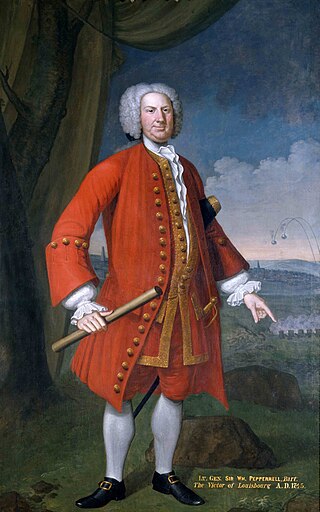
Sir William Pepperrell, 1st Baronet was an American merchant and soldier in colonial Massachusetts. He is widely remembered for organizing, financing, and leading the 1745 expedition that captured the French fortress of Louisbourg during King George's War. He owned a number of enslaved people and was considered one of the richest people in America.
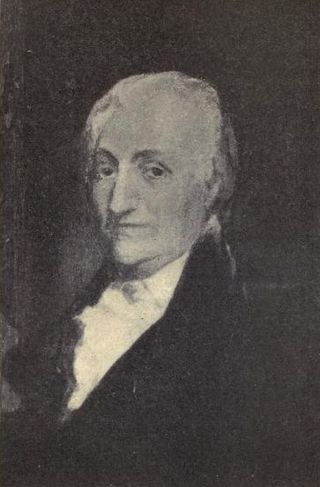
Montague Wilmot was an 18th-century British colonial Governor of Nova Scotia.

St. Paul's Church is a historically evangelical Anglican church in downtown Halifax, Nova Scotia, within the Diocese of Nova Scotia and Prince Edward Island of the Anglican Church of Canada. It is located at the south end of the Grand Parade, an open square in downtown Halifax with Halifax City Hall at the northern end.

The Old Burying Ground is a historic cemetery in Halifax, Nova Scotia, Canada. It is located at the intersection of Barrington Street and Spring Garden Road in Downtown Halifax.
A series of writs for the election of the 4th General Assembly of Nova Scotia were issued February 2–19, 1765, returnable by March 13, 1765. The assembly convened on May 28, 1765, held eight sessions, and was dissolved on April 2, 1770.
The 5th General Assembly of Nova Scotia represented Nova Scotia between May 1770 to 1784, its membership being set in the 1770 Nova Scotia general election.
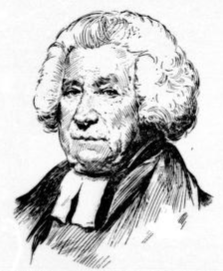
John Breynton was a minister in Halifax, Nova Scotia, Canada.
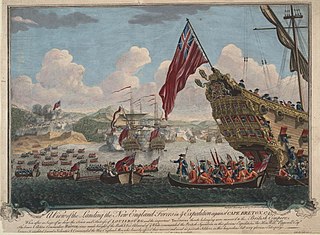
The Siege of Louisbourg took place in 1745 when a New England colonial force aided by a British fleet captured Louisbourg, the capital of the French province of Île-Royale during the War of the Austrian Succession, known as King George's War in the British colonies.
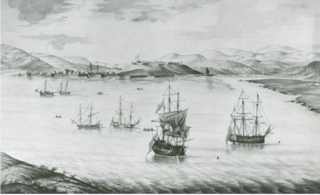
Lieutenant-General John Henry Bastide was a British army officer and military engineer who played a significant role in the early history of Nova Scotia. He was the chief engineer at both of the sieges of Louisbourg and the siege of Minorca (1756).

Richard Bulkeley was an influential administrator in Nova Scotia from 1749 to 1800. Historian Phyllis Blakeley writes that Bulkeley, "assisted 13 governors and lieutenant governors from Cornwallis to Wentworth. In half a century of service he took part in the founding of Halifax, the immigration of New Englanders and loyalists, and the prosperity of the French revolutionary wars." During his lifetime, known for hosting dignitaries and grand parties, he was known as "the Father of the Province." When he died, he was the last surviving settler who arrived with Cornwallis.

Joseph Gerrish was a soldier, merchant, judge and political figure in Nova Scotia. He was a member of the 1st General Assembly of Nova Scotia. He is buried in the Old Burying Ground.
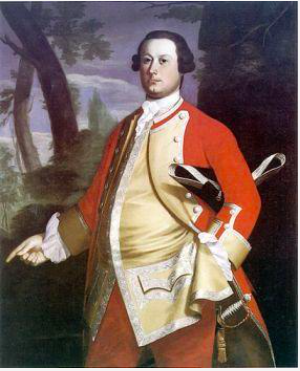
Joshua Winslow was a soldier, judge and political figure in Nova Scotia, Canada. He represented Cumberland County in the Nova Scotia House of Assembly from 1770 to 1772. He was the father of Anna Green Winslow.
John Gorham was a New England Ranger and was the first significant British military presence on the frontier of Nova Scotia and Acadia to remain in the region for a substantial period after the Conquest of Acadia (1710). He established the famous "Gorham's Rangers". He also commissioned two armed vessels: the Anson and the Warren, who patrolled off Nova Scotia.
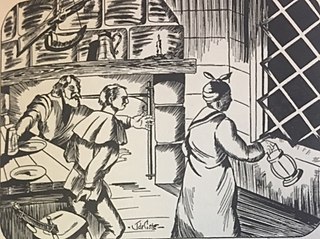
Joseph Gorham was an American colonial military officer during King George's War and later a British army commander during the Seven Years' War and the American Revolutionary War. He is best known for leading a company of British imperial Rangers, called Gorham's Rangers, during the 1750s and early 1760s. Gorham's unit played an important role in the French and Indian War and were early practitioners of American frontier warfare, more commonly known as petite guerre or Guerrilla warfare. He also became Governor of Placentia.
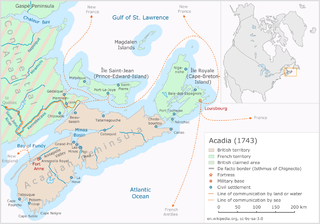
Father Le Loutre's War (1749–1755), also known as the Indian War, the Mi'kmaq War and the Anglo-Mi'kmaq War, took place between King George's War and the French and Indian War in Acadia and Nova Scotia.c On one side of the conflict, the British and New England colonists were led by British officer Charles Lawrence and New England Ranger John Gorham. On the other side, Father Jean-Louis Le Loutre led the Mi'kmaq and the Acadia militia in guerrilla warfare against settlers and British forces. At the outbreak of the war there were an estimated 2500 Mi'kmaq and 12,000 Acadians in the region.

The Raid on Dartmouth (1749) occurred during Father Le Loutre's War on September 30, 1749 when a Mi'kmaw militia from Chignecto raided Major Ezekiel Gilman's sawmill at present-day Dartmouth, Nova Scotia, killing four workers and wounding two. This raid was one of seven the Wabanaki Confederacy and Acadians would conduct against the settlement during the war.

Formally known as "His Majesty's Council of Nova Scotia", the Nova Scotia Council (1720–1838) was the original British administrative, legislative and judicial body in Nova Scotia. The Nova Scotia Council was also known as the Annapolis Council and the Halifax Council. After 1749, when the judicial courts were established, the Nova Scotia Council was limited to administrative and legislative powers.

Thomas Wood was a minister for the Church of England at St. Paul's Church, Halifax, Nova Scotia (1752–64). After 1746, he served as a surgeon in Commander William Shirley's regiment during the occupation of Louisbourg. In August 1752, with Governor Edward Cornwallis's approval, Wood arrived in Halifax and became an assistant at St. Paul's. In July 1766, Wood gave a sermon in the Mi'kmaq language in which the service was attended by many Mi'kmaq people and other dignitaries. In 1767, Wood conducted the marriage of the son of a Mi'kmaq chief. In 1769, Wood wrote about his missionary work on the Saint John River and giving prayers in Mi'kmaq.

Rev. John Seccombe was an author, a founder of Chester, Nova Scotia and was “the best-known and most highly respected clergyman in Nova Scotia.” He was also the author of Father Abbey's Will, which was printed as a poem and a broadsheet over 30 times throughout the 18th century in England and America. According to the Manual of American Literature, the poem "was one of the best comic poems of that day." As a result of the poem, the History of American Literature indicated that Seccombe "had an extraordinary notoriety" in America's early literary history.
References
- Chard, Donald F. (1979). "Green, Benjamin". In Halpenny, Francess G (ed.). Dictionary of Canadian Biography . Vol. IV (1771–1800) (online ed.). University of Toronto Press.
Benjamin Green | |
|---|---|
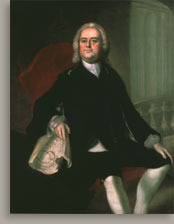 Green by Joseph Blackburn | |
| Governor of Nova Scotia | |
| In office 1766 |
| Governors at Annapolis Royal (1710–1749) | |
|---|---|
| Governors at Halifax (1749–1786) | |
| Lieutenant-governors of Cape Breton Island (1784–1820) | |
| Lieutenant-governors of Nova Scotia before responsible government (1786–1848) | |
| Lieutenant-governors between responsible government and Confederation (1848–1867) | |
| Post-Confederation (1867–present) | |
Lieutenant-governors who served in the absence of governors are listed in parentheses. Acting administrators are listed in italics. | |